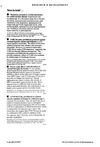Search
for
Sort by
Research
420-450 / 1000+ results
research Ginseng in Hair Growth and Viability
Ginseng, especially its component ginsenosides, can promote hair growth, reduce hair loss, and potentially treat conditions like alopecia by affecting cell pathways and cytokines.

research Dihydrotestosterone Stimulates 5α-Reductase Activity in Pubic Skin Fibroblasts
Dihydrotestosterone increases the activity of an enzyme in pubic skin cells that converts testosterone to dihydrotestosterone.

research Synthesis and Biological Evaluation of Novel Unsaturated Carboxysteroids as Human 5α-Reductase Inhibitors: A Legitimate Approach
New steroid compounds effectively inhibit 5α-reductase and may treat hair loss.

research The Dark Side of 5α-Reductase Inhibitors' Therapy: Sexual Dysfunction, High Gleason Grade Prostate Cancer, and Depression
5α-reductase inhibitors can cause sexual problems, higher risk of aggressive prostate cancer, and depression.
research Androgenic Alopecia and Dutasteride in Hair Mesotherapy: A Short Review
Dutasteride injections can help hair growth in androgenic alopecia but need more research for long-term use.

research Targeting Neurosteroid Synthesis as a Therapy for Schizophrenia-Related Alterations Induced by Early Psychosocial Stress
A drug improved schizophrenia-like symptoms in stressed rats by changing brain steroid levels.

research AKR1D1 Regulates Glucocorticoid Availability and Glucocorticoid Receptor Activation in Human Hepatoma Cells
AKR1D1 controls glucocorticoid levels and receptor activity in liver cells.

research 5α-Reductase Type 1 Inhibition of Oryza Sativa Bran Extract Prepared by Supercritical Carbon Dioxide Fluid
Rice bran extract might help prevent hair loss.

research Association of Suicidality and Depression With 5α-Reductase Inhibitors
Men over 66 taking medication for prostate enlargement have a higher risk of depression and self-harm, especially in the first 18 months of treatment.

research Effects of Ginseng Rhizome and Ginsenoside Ro on Testosterone 5α-Reductase and Hair Regrowth in Testosterone-Treated Mice
Ginseng, especially red ginseng, may help regrow hair and block a hair loss-related enzyme.

research 5α-Reductase Activity in Women with Polycystic Ovary Syndrome: A Systematic Review and Meta-Analysis
Women with PCOS have higher 5α-reductase activity, which may be linked to insulin resistance.

research Herbal Hair Gel Formulation with 5α-Reductase Inhibitory Activity and Standardization by HPTLC
The herbal hair gel could be a safe hair growth treatment with minimal side effects.

research Sexual Dysfunction in Subjects Treated with Inhibitors of 5α-Reductase for Benign Prostatic Hyperplasia: A Comprehensive Review and Meta-Analysis
Men taking 5α-reductase inhibitors for enlarged prostate have a higher chance of experiencing reduced sexual desire and erectile dysfunction.

research Three-Month Treatment With a Long-Acting Gonadotropin-Releasing Hormone Agonist of Patients With Benign Prostatic Hyperplasia: Effects on Tissue Androgen Concentration, 5α-Reductase Activity and Androgen Receptor Content
A three-month treatment with a GnRH agonist significantly lowered androgen levels and 5α-reductase activity in men with benign prostatic hyperplasia.

research Negative Impact of Testosterone Deficiency and 5α-Reductase Inhibitors Therapy on Metabolic and Sexual Function in Men
Low testosterone and 5α-reductase inhibitors can harm men's metabolic and sexual health; testosterone therapy may help, but discussing 5α-RIs' side effects is important.

research Health Promotion Potential of Vegetables Cultivated in Northern Thailand: A Preliminary Screening of Tannin and Flavonoid Contents, 5α-Reductase Inhibition, Astringent Activity, and Antioxidant Activities
Some vegetables from Northern Thailand show promise for health benefits, including hair loss treatment and antioxidant properties.

research Do 5α-Reductase Inhibitors Raise Circulating Serum Testosterone Levels? A Comprehensive Review and Meta-Analysis Explaining Paradoxical Results
5α-Reductase inhibitors do not consistently increase testosterone levels in the blood.

research Inhibition of 5α-Reductase Impairs Cognitive Performance, Alters Dendritic Morphology, and Increases Tau Phosphorylation in the Hippocampus of Male 3xTg-AD Mice
Blocking 5α-reductase can harm memory and brain structure, and increase harmful brain changes in male mice used for Alzheimer's disease research.

research Therapeutic Control of Androgen Action
Understanding how androgens work is key for creating new treatments for prostate issues and hair/skin conditions.

research Analysis of Data From Breast Diseases Treated With 5-Alpha Reductase Inhibitors for Benign Prostatic Hyperplasia
Medicines for enlarged prostate may raise the risk of breast growth and tenderness but not breast cancer.

research Potential Targets in the Discovery of New Hair Growth Promoters for Androgenic Alopecia
The document concludes that targeting 5α-reductase, the androgen receptor, and hair growth genes, along with using compounds with anti-androgenic properties, could lead to more effective hair loss treatments.

research Safety Concerns Regarding 5α Reductase Inhibitors for the Treatment of Androgenetic Alopecia
5α reductase inhibitors treat hair loss but may cause sexual side effects and risks.

research Exercise Activates the PI3K-AKT Signal Pathway by Decreasing the Expression of 5α-Reductase Type 1 in PCOS Rats
Exercise improves insulin sensitivity and hormone regulation in PCOS rats.

research Acne
Hormonal treatments can help with acne, especially in women, by lowering androgen levels or blocking their effects.

research Effect of Citrullus Colocynthis Schrad on Testosterone-Induced Benign Prostatic Hyperplasia
Citrullus colocynthis fruit extract and its compound may help treat enlarged prostate.

research News in Brief: Taiwanese Study on Dicentrine, Japanese Study on T-588, Provir's Effects on Herpes, and LY191704 as a 5α-Reductase Inhibitor
Dicentrine reduced heart disease risk factors in rats, T-588 protected mice brains without side effects, Provir blocked herpes virus and lessened mouse symptoms, and LY191704 could treat hair loss and prostate issues.

research DHT and E2 Synthesis-Related Proteins and Receptors Expression in Male Yak Skin During Different Hair Follicle Stages
Male yak hair growth is influenced by DHT synthesis, which is promoted by 5α-red1 and AR during growth phases, while E2 may inhibit growth through ERα.

research The Experimental Study on the Effect of Herbal Extracts on Hair Growth and Acne
Rubus coreanum may help hair growth but not through the tested mechanisms, and none of the herbal extracts help with acne.

research Herbal Extracts Induce Dermal Papilla Cell Proliferation of Human Hair Follicles
Herbal extracts may help hair grow and could be an alternative to synthetic hair loss treatments.